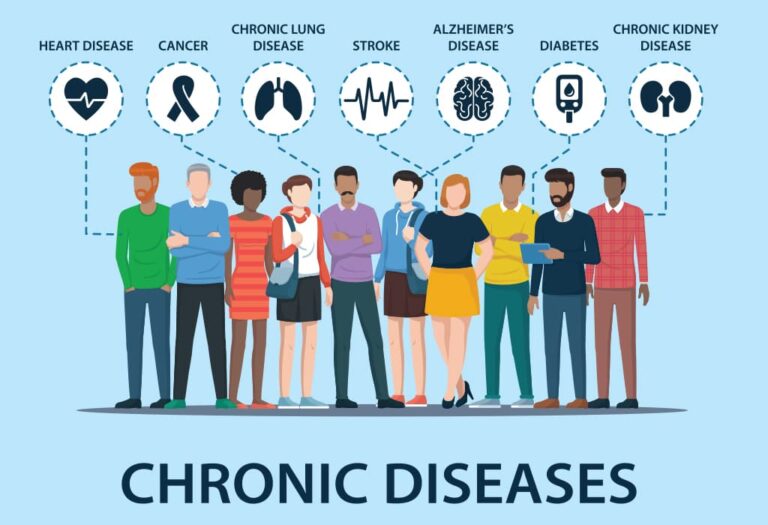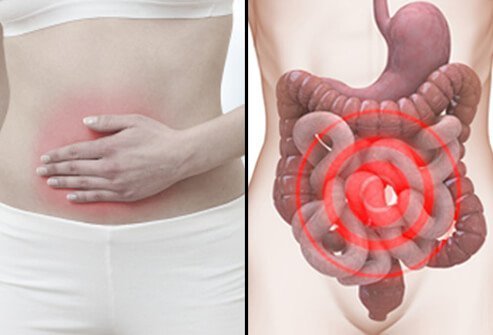Peripartum or Postpartum Depression
Author: Giselle Robel
Giselle Robel
Category: Health
Tags: health, depression, peripartum
Peripartum depression refers to depression occurring duringpregnancy or after childbirth. The use of the term peripartum recognizes that depression associated with having a baby often begins during pregnancy.
For most women, having a baby is a very exciting, joyous, and often anxious time. But for women with peripartum (formerly postpartum) depression, it can become very distressing and difficult.
Peripartum or Postpartum depression is a mental health illness that affects women after giving birth. For some women, it is normal to feel the baby blues for a few weeks after giving birth.
With postpartum depression, feelings of sadness, loneliness, worthlessness, restlessness, and anxiety last much longer than a few weeks.
Peripartum depression is a serious, but treatable medical illness involving feelings of extreme sadness, indifference and/or anxiety, as well as changes in energy, sleep, and appetite. It carries risks for the mother and child.
An estimated one in seven women’s experiences peripartum depression.
Pregnancy and the period after delivery can be a particularly vulnerable time for women. Mothers often experience immense biological, emotional, financial, and social changes during this time.
Some women can be at an increased risk for developing mental health problems, particularly depression and anxiety.
Up to 70 percent of all new mothers experience the baby blues, a short- lasting condition that does not interfere with daily activities and doesn’t require medical attention. Symptoms of this emotional condition may include crying for no reason, irritability, restlessness, and anxiety. These symptoms last a week or two and generally resolve on their own without treatment.
Peripartum depression is different from the baby blues in that it is emotionally and physically debilitating and may continue for months or more. Getting treatment is important for both the mother and the child.
Symptoms of peripartum depression

- Feeling sad or down often.
- Frequent crying or tearfulness.
- Feeling restless, irritable, or anxious.
- Loss of interest or pleasure in life.
- Loss of appetite.
- Less energy and motivation to do things.
- Difficulty sleeping, including trouble falling asleep, trouble staying asleep, or sleeping more than usual.
- Feeling worthless, hopeless, or guilty.
- Unexplained weight loss or gain.
- Feeling like life isn't worth living.
- Showing little interest in your baby.
- Not feeling attached to your baby.
Although many women get depressed right after childbirth, some women don't begin to feel depressed until several weeks or months later. Depression that occurs within 6 months of childbirth may be peripartum/postpartum depression.
A woman experiencing peripartum depression usually has several of these symptoms, and the symptoms and their severity may change. These symptoms may cause new mothers to feel isolated, guilty, or ashamed. To be diagnosed with peripartum depression, symptoms must begin during pregnancy or within four weeks following delivery.
Many women with peripartum depression also experience symptoms of anxiety.
One study found that nearly two-thirds of women with peripartum depression also had an anxiety disorder.
While there is no specific diagnostic test for peripartum depression, it is a real illness that should be taken seriously. Any pregnant woman or new mother who experiences the symptoms of peripartum depression should seek evaluation by a medical professional - an internal medicine doctor or an OB-GYN, who can make referrals to a psychiatrist or other mental health professional.
Assessment should include a psychiatric evaluation and a medical evaluation to rule out physical problems that may have symptoms similar to depression (such as thyroid problems or vitamin deficiencies).
Causes of peripartum/postpartum depression
The exact cause isn't known. Hormone levels change during pregnancy and right after childbirth. Those hormone changes may produce chemical changes in the brain. This plays a part in causing depression.
Peripartum/Postpartum depression is more likely to occur if you have had any of the following:
- Previous postpartum depression.
- Depression not related to pregnancy.
- Severe premenstrual syndrome (PMS).
- A difficult or very stressful marriage or relationship.
- Few family members or friends to talk to or depend on.
- Stressful life events during pregnancy or after childbirth (such as severe illness during pregnancy, premature birth, or a difficult delivery).
Who Is at Risk?
Any new mother (or gestational carrier/surrogate) can experience symptoms of peripartum depression or other mood disorder.
Women are at increased risk of depression during or after pregnancy if they have previously experienced (or have a family history of) depression or other mood disorders.
And, if they are experiencing particularly stressful life events in addition to the pregnancy, or if they do not have the support of family and friends.
Research suggests that rapid changes in sex and stress hormones and thyroid hormone levels during pregnancy and after delivery have a strong effect on moods and may contribute to peripartum depression. Other factors include physical changes related to pregnancy, changes in relationships and at work, worries about parenting and lack of sleep.
Fathers: Pregnancy/childbirth and Depression
New fathers can also experience symptoms of peripartum depression. Symptoms may include fatigue and changes in eating or sleeping. Estimated, 4% of the father’s experience depression in the first year after their child's birth. Younger fathers, those with a history of depression and fathers with financial difficulties are at increased risk of experiencing depression.
Can peripartum/postpartum depression be prevented or avoided?
Postpartum depression cannot be prevented or avoided. However, if you have a history of depression or postpartum depression after giving birth to other children, you can prepare.
Preparation might include keeping your mind and body healthy.
Eat healthy during your pregnancy, exercise, and learn stress reduction strategies. Once your baby is born, stay away from alcohol and caffeine.
Continue to make healthy lifestyle decisions.
See your doctor earlier in your pregnancy or sooner after giving birth if you are worried you will have postpartum depression.
Treatment
Many women may suffer in silence, dismissing their struggles as a normal part of pregnancy and childbirth and fail to seek care.
Treatment for depression during pregnancy is essential. Greater awareness and understanding can lead to better outcomes for women and their babies.
Like other types of depression, peripartum depression can be managed with psychotherapy (talk therapy), medication, lifestyle changes and supportive environment or a combination of these.
Women who are pregnant or nursing should discuss the risks and benefits of medication with their doctors. In general, the risk of birth defects to the unborn baby are low.
The decision should be made based on careful consideration of the potential risk-benefit ratio of treatment vs no treatment affecting the health of the mother, the unborn child, and/or the nursing newborn/infant.
Guidelines for treating women with major depressive disorder who are pregnant or breastfeeding recommend psychotherapy without medication as a first-line treatment when the depression or anxiety is mild.
For women with moderate or severe depression or anxiety, antidepressant medication should be considered as a primary treatment. 6
Antidepressant options during pregnancy:
- Selective serotonin reuptake inhibitors (SSRIs): Consult with your physician, but note that some SSRIs have been associated with a rare but serious lung problem in newborn babies (persistent pulmonary hypertension of the newborn).
- Serotonin and norepinephrine reuptake inhibitors (SNRIs)
- Bupropion (Wellbutrin)
- Tricyclic antidepressants (TCAs)
With proper treatment, most new mothers find relief from their symptoms.
Women who are treated for peripartum depression should continue treatment even after they feel better. If treatment is stopped too soon, symptoms can recur.
Self-help and Coping
The support of family and friends, joining a mom's support group, and good nutrition and exercise can be helpful. Other suggestions for helping to cope with peripartum depression include resting as much as you can (sleep when your baby sleeps) and make time to go out or visit friends.
How Partners, Family and Friends Can Help
Strong support from partners, family and friends is very important.
- Know the Signs. Learn to recognize the symptoms of depression and anxiety and if you see signs, urge her to see a health care provider.
- Listen to Her. Let her know you want to hear her concerns. For example, “I notice you are having trouble sleeping, even when the baby sleeps. What’s on your mind?”
- Give Her Support. Let her know she’s not alone and you are here to help. Try offering to help with household tasks or watching the baby while she gets some rest or visit friends.
- Encourage her to seek help if needed. She may feel uncomfortable and not want to seek help. Encourage her to talk with a health care provider. Share some information on peripartum conditions. Offer to make an appointment for her talk with someone.
Related conditions during pregnancy and after childbirth
Peripartum anxiety - Although estimates vary, a 2013 study found that about 16% of women experience an anxiety disorder during pregnancy and about 17% experience it during the postpartum period.
After giving birth, some women develop intense anxiety, with rapid heart rate, a sense of impending doom and irrational fears and obsessions.
Feeling guilty and blaming oneself when things go wrong, and worrying and feeling panicky for no good reason are signs of anxiety in the peripartum period.
Treatment may include medication and therapy, alone or in combination.
Peripartum bipolar disorder - Bipolar disorder has two phases, the depression phase (the lows') and the manic phase (the highs'). When the lows' and highs' happen at the same time, it is considered a mixed' episode.
Bipolar illness can emerge during pregnancy or the postpartum period. Risk factors include a previous mood disorder and family history of mood disorders.
Symptoms of depression and mania:
- Severe sadness and irritability
- Elevated mood
- Rapid speech and racing thoughts
- Little or no sleep and high energy
- Impulsive decisions and poor judgment
- Delusions that can be grandiose or paranoid
- Hallucinations - seeing or hearing things that are not present
Treatment can include mood stabilizers and antipsychotic medications along with therapy.
Peripartum Psychosis - Peripartum psychosis is an extremely rare but serious condition it occurs in only one or two out of every 1,000 deliveries. The symptoms of peripartum psychosis are extreme and may include insomnia, excessive energy, agitation, hearing voices, and extreme paranoia or suspiciousness. Many women with peripartum psychosis have a personal or family history of bipolar disorder. Symptoms of peripartum psychosis can be a serious medical emergency and require immediate attention.













